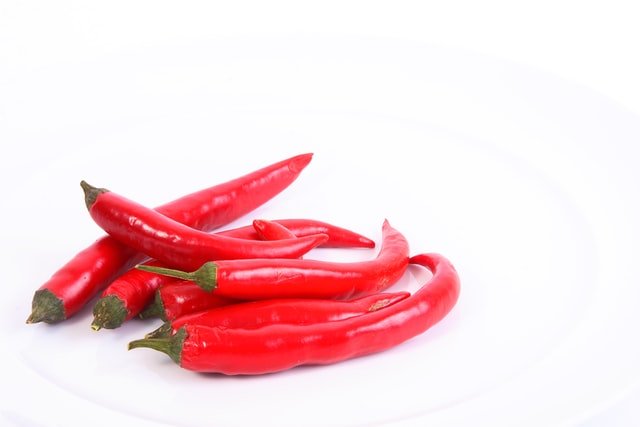
Scientists from Third Military Medical University found for those with high blood pressure, chili peppers might be just what the doctor ordered.
While the active ingredient that gives the peppers their heat — a compound known as capsaicin — might set your mouth on fire, it also leads blood vessels to relax.
The team found that long-term dietary consumption of capsaicin, one of the most abundant components in chili peppers, could reduce blood pressure.
The research is published in Cell Metabolism and was conducted by Zhiming Zhu et al.
In the study, the team found the beneficial effects depend on the chronic activation of something called the transient receptor potential vanilloid 1 (TRPV1) channel found in the lining of blood vessels.
Activation of the channel leads to an increase in the production of nitric oxide, a gaseous molecule known to protect blood vessels against inflammation and dysfunction.
The team says the prevalence of hypertension is over 20% in Northeastern China compared to 10-14% in Southwestern China, including Sichuan, Guozhuo, Yunnan, Hunan, and Chongqing.
People in these regions like to eat hot and spicy foods with a lot of chili peppers.
For those who can’t tolerate spicy foods, there might still be hope. The team notes the existence of mild Japanese pepper, which contains a compound called capsinoid that is closely related to capsaicin.
If you care about high blood pressure, please read studies about nutrient that could protect against high blood pressure, and common high blood pressure drugs may actually raise blood pressure.
For more information about high blood pressure, please see recent studies about teas that could help reduce high blood pressure, and results showing cannabis could reduce blood pressure in older people.
Copyright © 2022 Knowridge Science Report. All rights reserved.



